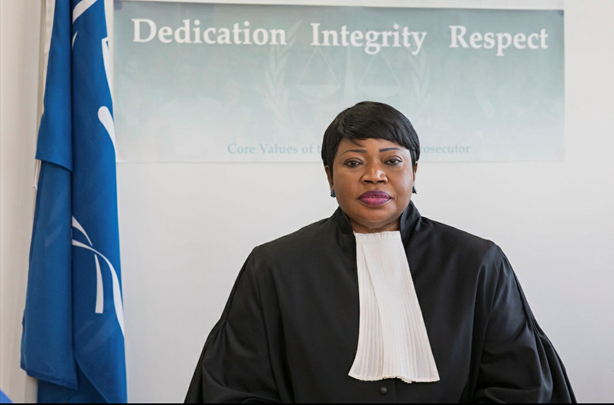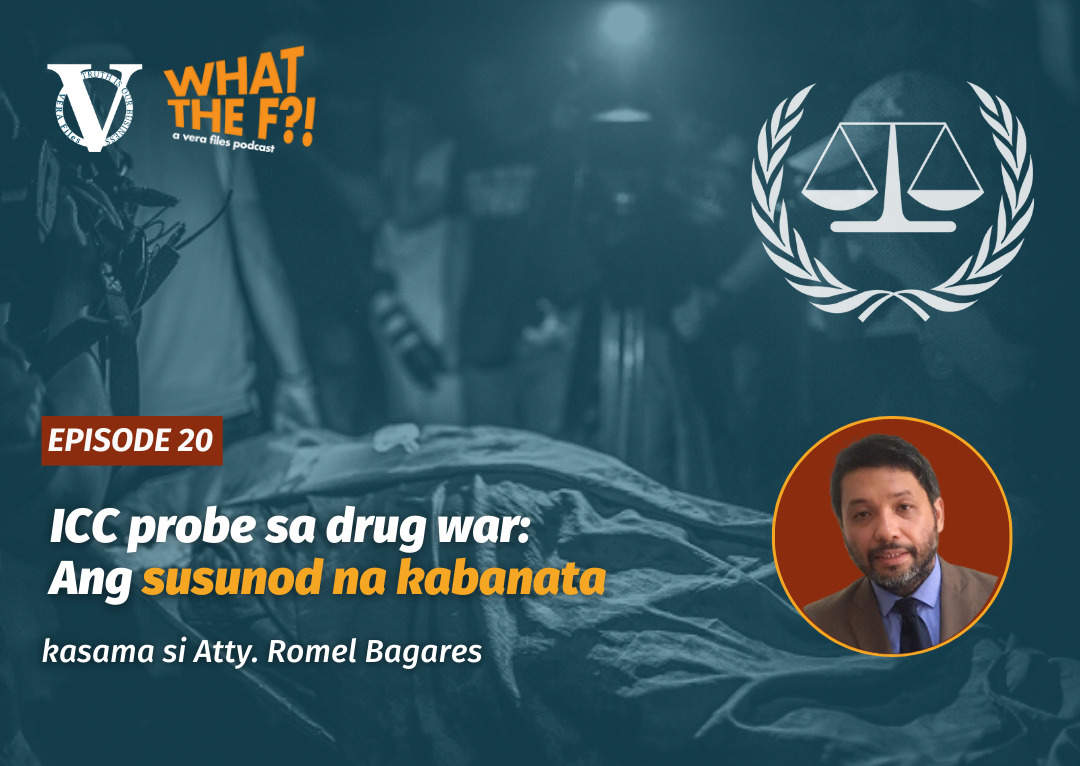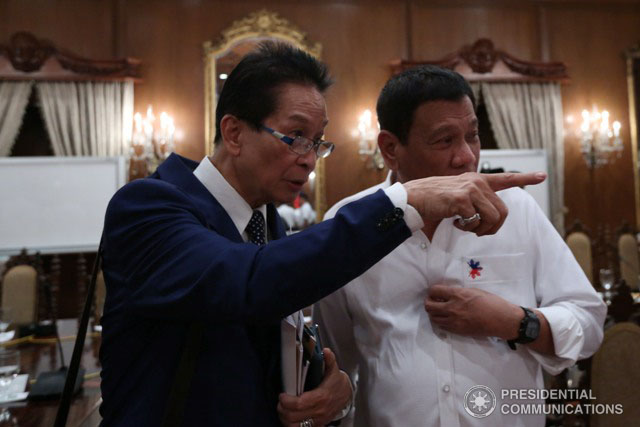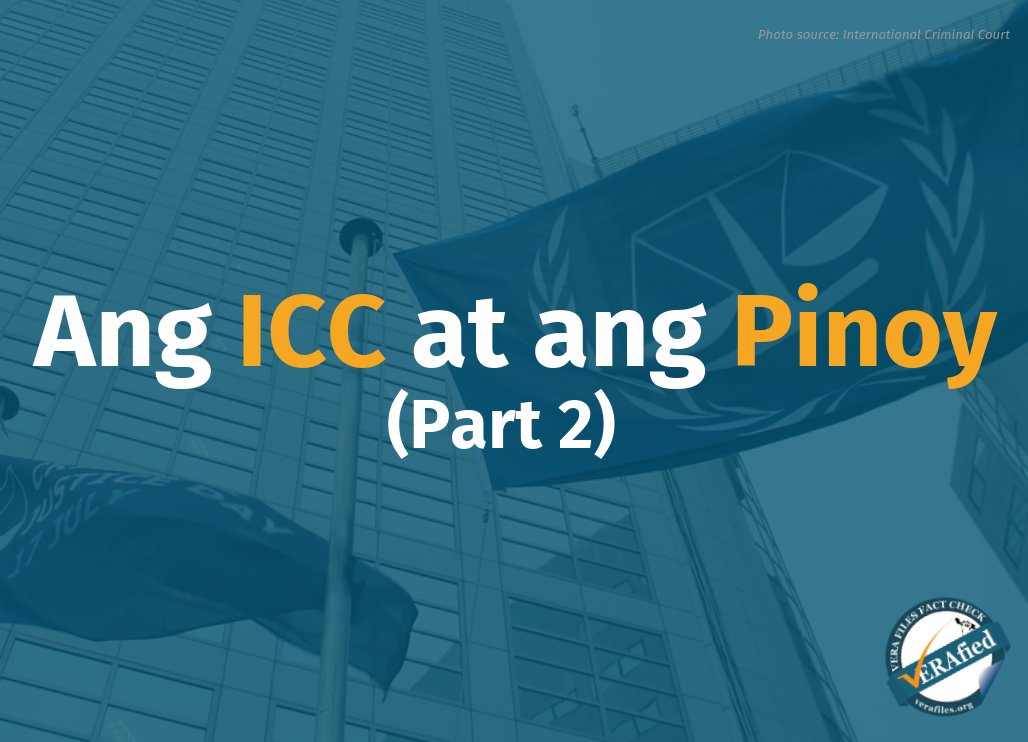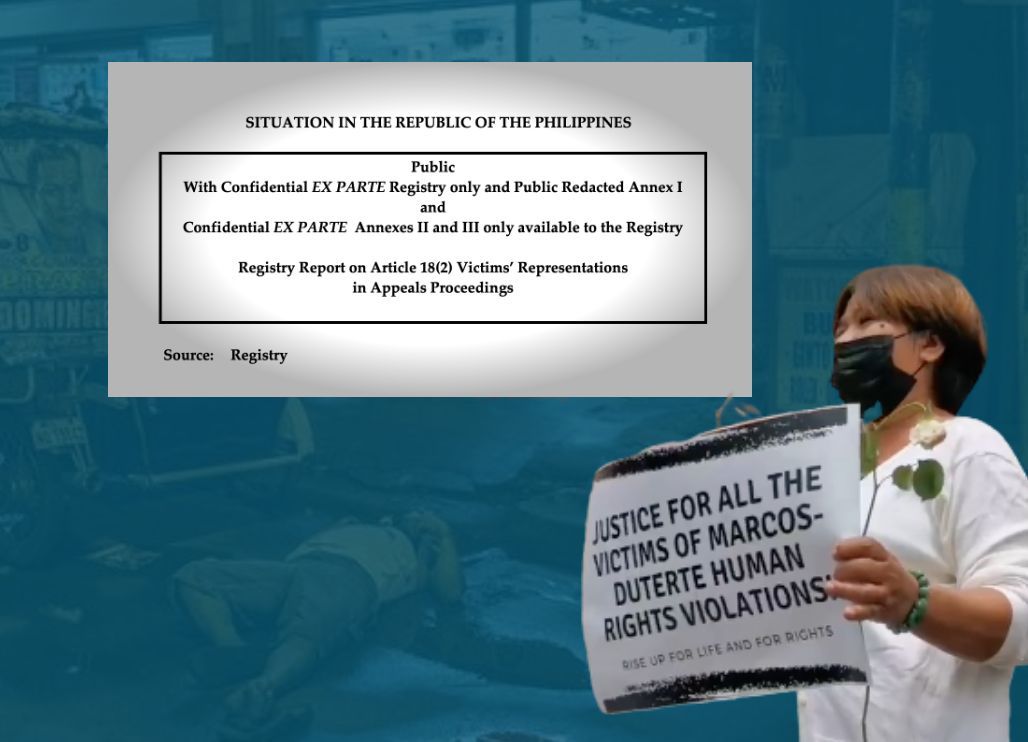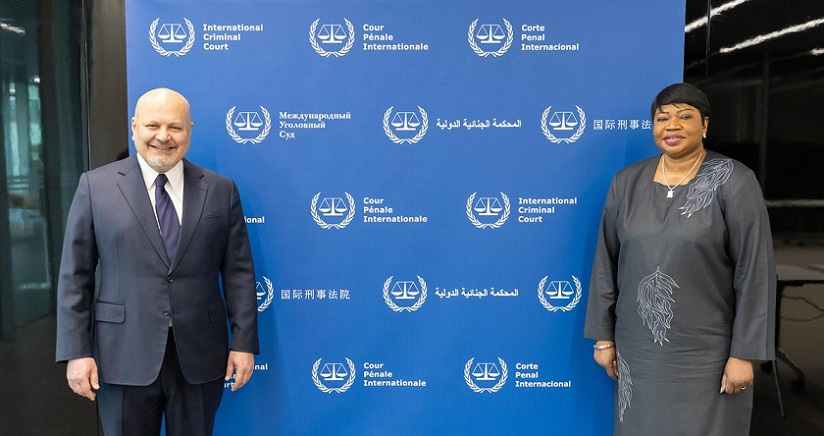
Transition at the ICC: Incoming ICC Prosecutor Karim Khan (left) and outgoing Prosecutor Fatou Bensouda
International Criminal Court (ICC) Prosecutor Fatou Bensouda has asked the court’s Pre-Trial Chamber to grant “judicial authorization” for an investigation of President Rodrigo Duterte’s war on drugs, following initial findings that “state actors, primarily members of the Philippine security forces, killed thousands of suspected drug users and other civilians during official law enforcement operations.”
Bensouda, who ends her nine-year term as prosecutor at the ICC today, June 15, also sought an expansion of the probe to include “strikingly similar crimes” and involving an “overlap of individuals” in Davao from 2011 to 2016. Duterte was mayor of Davao City at that time.
Her team began on Feb. 8, 2018 a preliminary examination of alleged extrajudicial killings in the Philippines in connection with the Duterte administration’s campaign against illegal drugs. It was concluded with the request for judicial authorization to proceed with a formal investigation.
Bensouda said the conclusion was arrived at after analysing a large amount of publicly available documents and information provided to the team under article 15 of the Rome Statute. “On the basis of that work, I have determined that there is reasonable basis to believe that thee crime against humanity of murder has been committed” in the Philippines between July 1, 2016 and March 16, 2019 in carrying out Duterte’s war on drugs campaign, she said in a statement.
“Following a thorough preliminary examination process, the available information indicates that members of the Philippine National Police, and others acting in concert with them, have unlawfully killed between several thousand and tens of thousands of civilians during that time,” the outgoing ICC prosecutor added.
At least 52 communications related to extrajudicial killings in the Philippines were filed with the ICC, including those prepared by former senator Antonio Trillanes IV and former representative Gary Alejano, as well as groups like Rise Up for Life and Rights with the National Union of People’s Lawyers (NUPL).
Reacting to Bensouda’s announcement of her recommendation, Trillanes said: “This is another monumental step towards justice for all the families of victims of Extra-Judicial Killings. The long arm of the law will soon catch up with Duterte and his accomplices.”
NUPL President Edre U. Olalia said: “It was all worth the wait, notwithstanding the long nights of grief and grim days of fear. Indeed, there will be justice somewhere, somehow. While the road ahead will be tortuous and filled with trepidation and intimidation to the victims, witnesses, and even lawyers, we will have to see this through. Crimes against humanity are crimes against all. No one is exempt or invincible, no matter how arrogant the impunity or deceiving the pretension.”
Malacañang has not issued a statement on the ICC announcement as of this writing.
If the ICC Pre-Trial Chamber (PTC) authorizes the investigation, Duterte would be the first Asian leader to be investigated by the ICC.
What happens next?
International law professor Romel Bagares said: “This request for authorization to do a preliminary investigation is the very first opportunity for victims to intervene in the proceedings. Under ICC rules, victims may make their own submissions to the PTC within 30 days of the Office of the Prosecutor’s (OTP) filing of the request for authorization.”
At this stage, however, the Philippines – although it has already withdrawn from the court – may still opt to contest admissibility within 30 days of notice from the OTP, by informing the ICC that it is, in fact, investigating the crimes, Bagares further explained. “Philippine authorities must do so before the PTC decides to authorize an investigation. Otherwise, the investigation will proceed.”
If the PTC authorizes the investigation, it will “at any time after the initiation of an investigation,” and at the OTP’s instance, issue a warrant of arrest. A warrant is issued to compel a suspect to appear in a trial, or make sure he does not endanger or obstruct the investigation or court proceedings, or to prevent the person from continuing to commit the crimes alleged.
The PTC grants a warrant application if the evidence supports a “reasonable conclusion that the person committed a crime within the jurisdiction of the court.” It is not required that this be the only reasonable conclusion that can be drawn from the evidence, Bagares said, adding that “the issuance of a warrant transforms the proceedings into a case proper, in which a suspect is now considered to have been formally charged – or indicted – for international crimes.”
However, under ICC rules, a suspect only becomes an accused standing for criminal trial once the PTC confirms the charges, in which case the proceeding is transferred to the ICC Trial Division.
Following an arrest or surrender of a suspect, the PTC immediately holds a hearing for “confirmation of charges.” This is to determine whether the case should go to trial. Under exceptional circumstances, a confirmation of charges hearing may be held in absentia, or without the presence of the suspect, Bagares added.
He said: “The confirmation of charges is analogous to the more elaborate procedure for judicial determination of probable cause in Philippine courts, except that it is carried out by a distinct and separate body for the ICC — the PTC.”
The PTC may also issue a “sealed warrant” – a warrant issued confidentially – to increase the likelihood of a suspect being arrested and brought to trial.
However, the PTC may also issue summons to a suspect to appear on reasonable grounds that he will appear voluntarily before the court, although restrictions on the person’s liberty (other than detention) may likewise be imposed on a suspect who accepts the summons, Bagares said.
Expanding scope of investigation
Although Bensouda’s preliminary examination primarily focused on drug-related killings only under Duterte’s term, she has asked the chamber to expand the scope of the investigation given the similar “patterns of killing” that occurred in Duterte’s hometown Davao City and the nationwide drug operations led by the police under the so-called “Oplan Tokhang,” the 57-page document dated May 24 that accompanied the statement showed.
Bensouda’s preliminary examination found out that “police and other government officials planned, ordered, and sometimes directly perpetrated extrajudicial killings” and that “they paid police officers and vigilantes bounties for extrajudicial killings.”
The prosecutor said some police officers pretended to be “vigilantes” incarrying out the killings, while real vigilantes were “recruited, coordinated, and paid by police to kill civilians.” Killings under Duterte’s drug war from July 2016 to March 2019 were estimated to have reached between 12,000 and 30,000, according to the prosecutor.
Pattern of killings similar to that in Davao
Bensouda noted the pattern of killings observed in Davao was virtually the same as what was reported in the war on drugs from 2016 to 2019. Sources also indicate that members of law enforcement agencies killed suspected drug personalities in the course of anti-drug operations, and conducted visits to houses of suspected drug pushers, in operations known as “tuktok,” which appeared to follow a similar model to the “Tokhang” operations carried out during the campaign against illegal drugs under the Duterte presidency.
PH withdrawal has no effect on probe
In March 2019, the Philippines officially withdrew from the Rome Statute and the ICC as a state party, exactly a year after Duterte ordered the Department of Foreign Affairs to begin the one-year withdrawal process. The president’s order came almost a month after Bensouda announced in February 2018 the launch of a preliminary examination of crimes that occurred in carrying out Duterte’s drug war.
Bensouda said, “although the withdrawal of the Philippines from the Rome Statute of the ICC took effect on 17 March 2019, as the Court has previously found in the context of the Burundi situation, the Court retains jurisdiction over crimes that are alleged to have occurred on the territory of that State during the period when it was a State Party to the Rome Statute. Moreover, these crimes are not subject to any statute of limitation.”
Bensouda will be retiring today, June 15, 2021. “Any authorised investigation in the Philippines will fall to my able successor, Mr Karim Khan, to take forward,”she said.
Read the statement and full report here.
